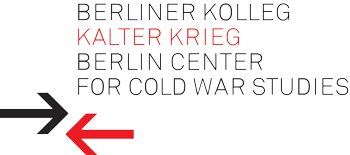Ending the Cold War: Personal Diplomacy of Gorbachev, Reagan, and Bush. Lecture by Svetlana Savranskaya and Thomas S. Blanton (Washington, D.C.)
LECTURE SERIES: TRUST AS A RESOURCE OF INTERNATIONAL POLITICS
Please note: Tonight's venue is Hörsaal 2097.
Please use entrance Universitätsstraße.
Program as pdf download (in German).
No admission fee.
Registration not required.


This lecture in English is part of the series "Vertrauen als Ressource internationaler Politik | Trust as a Resource of International Politics".
Chair: Dr. Tim Geiger, Institute of Contemporary History Munich – Berlin, Foreign Office Branch
When Mikhail Gorbachev, General Secretary of the Soviet Communist Party, came to po|wer in March 1985, one of his top priorities was to stop the arms race and thereby to end the Cold War, so that he could focus instead on rebuilding the Soviet economy. On the other side of the globe, he found an enthusiastic partner in Ronald Reagan. Coming from radically different social and political systems, both shared one belief – that nuclear weapons should be abolished. First in letters and then in a series of summits, they began a conversation in which they were able to reduce each side’s sense of threat. One of the major results of this cooperation was the first arms control treaty, which eliminated an entire class of nuclear weapons. After his election in 1988, George H.W. Bush was unwilling to pick up where Reagan had left off, hampering the initial progress in all areas of US-Soviet relations. Only after the Malta summit in December 1989, did he also develop a working partnership with Gorbachev.
This talk will address the issue of leadership at the end of the Cold War and analyze the successes and missed opportunities of the late 1980s and early 1990s, by looking at Gorbachev, Reagan, and Bush’s interactions and the end of the Cold War.
Dr. Svetlana Savranskya is a Senior Research Fellow at the National Security Archive at the George Washington University, Washington D.C. She is the director of the Archive’s Russia programs and leads the Archive’s Cooperative Threat Reduction Program, focusing on the Nunn-Lugar initiative and the ongoing challenges of U.S.-Russia cooperation.
Thomas S. Blanton is Director of the National Security Archive at George Washington University in Washington, D.C. He is an expert on US foreign policy with a focus on the Cold War.
In 2016, they published The Last Superpower Summits: Gorbachev, Reagan, and Bush (Central European University Press).
The lecture series is hosted by the Berlin Center for Cold War Studies and the Humboldt University Berlin.
Please be advised that photos and audio recordings might be made for reasons of private and public documentation.
